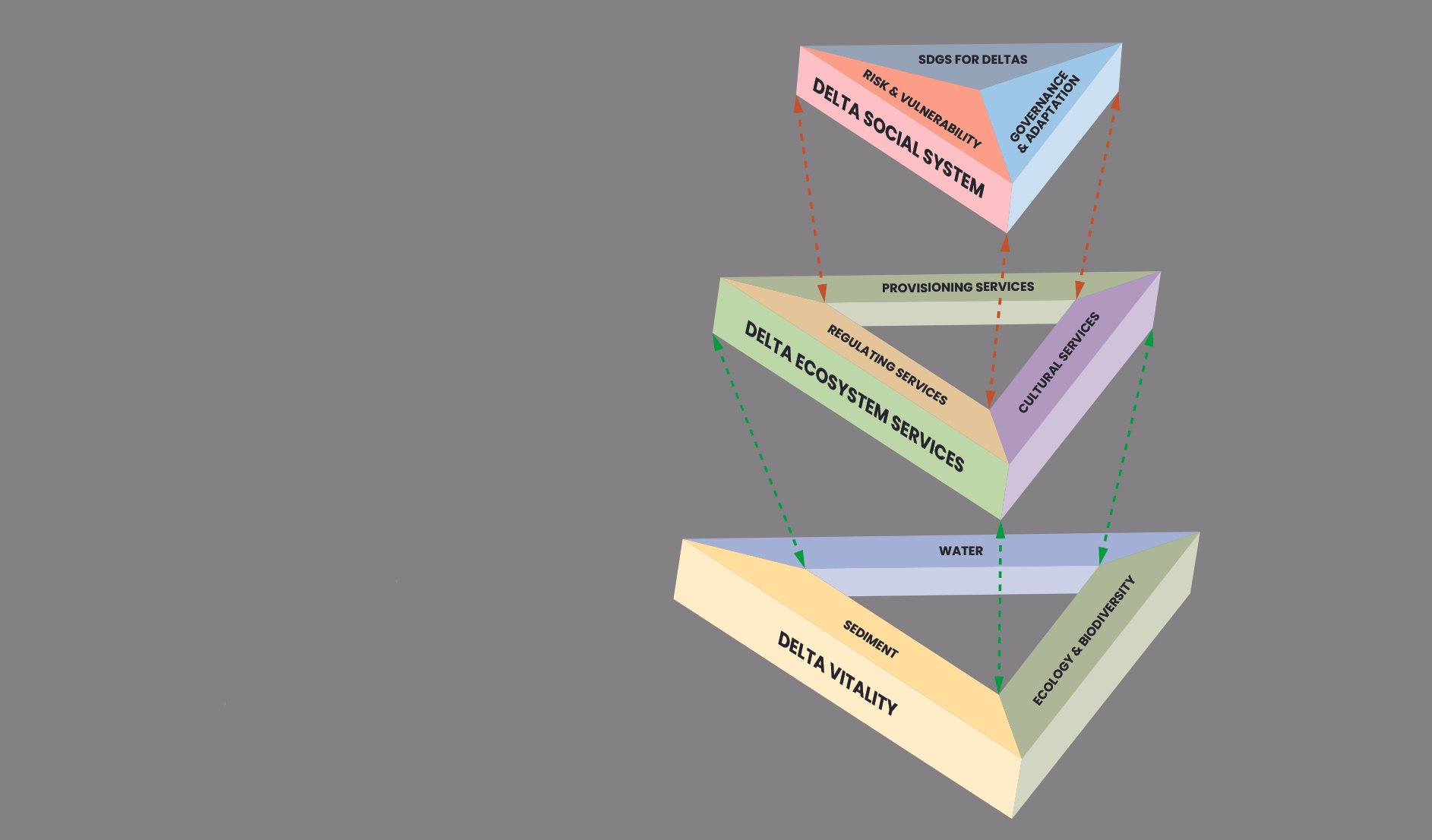
Call to Action
The DeLTAS Toolkit

“Use the ‘DeLTAS’ toolkit to build an integrated picture of your delta’s environmental and social ‘health’ and identify gaps in knowledge which may be hindering efforts to sustainably manage it. ”
‘DeLTAS’ - Delta Learning Tool for Assessing Sustainability.
The Hub has designed an innovative and free-to-use delta sustainability assessment toolkit aimed specifically at practitioners, delta managers, researchers, and policymakers.
The DeLTAS toolkit is a key deliverable from the Living Deltas Hub research programme focusing on the GBM (India and Bangladesh), Red River and Mekong River deltas, and is designed to be applicable to any populated delta world-wide.
It uses your knowledge base only to (a) build an integrated picture of your delta’s environmental and social ‘health’, and (b) identify gaps in knowledge which may be hindering efforts to sustainably manage the delta for the future.
The DeLTAS toolkit does NOT require any data; it uses your knowledge, or lack of knowledge, of nine major ‘delta elements’ to explore delta health and knowledge gaps to support this: delta ecosystem vitality (sediments; water; ecology & biodiversity), delta ecosystem services (regulating, provisioning and cultural ecosystem services); the delta social system (risk & vulnerability; application of the UN SDGs; governance & adaptation).
Why this is important
Human activities are radically altering delta environments. Climate change acts to exacerbate the existing impacts of population growth and landscape alteration and degradation.
Many of the world’s most populous deltas face existential threats from over-exploitation of natural resources, climate change and predicted sea level rise, combined with sediment scarcity and sinking land.
The DeLTAS toolkit, designed specifically for delta managers and monitoring agencies, researchers and policymakers, provides a multi-faceted assessment of your delta, its status, threats facing it, and steps towards more sustainable management
Priorities and steps
Highlight to key stakeholders - whether managers, practitioners, academics, policymakers, NGOs, industry, or community managers - the importance of developing an integrated understanding of the status of their delta environment at a scale that is meaningful to them.
Promote and share the toolkit to stakeholders, particularly encouraging policy makers and practitioners engaged in policy making for delta systems to use the toolkit as part of their development of strategies and approaches to delta management.
Use the toolkit to provide evidence over time on progress on delta vitality, ecosystem services and social systems, as well as to track changes in knowledge and evidence on delta eco-systems.
Want more information?
The toolkit is available at www.deltastoolkit.com.
Click on our Hub outputs page here to access more information about what we do and who we work with via a series of informal blogs and other resources, videos, books and booklets and policy briefs. Here you can also easily access our Hub publications in academic journals as well as a series of mid project case studies.
